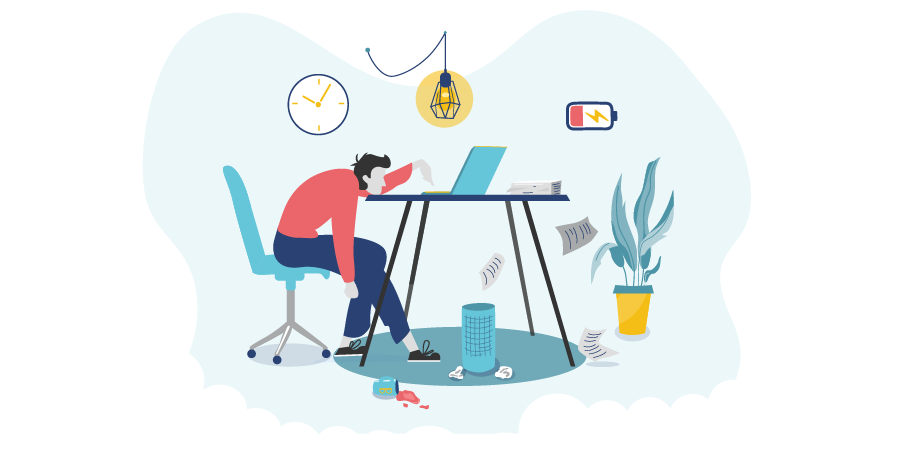Overcoming Software Engineer Burnout: 7 Practical Tips for a Healthier Work-Life

Image by Freepik
In the fast-paced and demanding world of software engineering, burnout has become an increasingly prevalent issue. With intense deadlines, high expectations, and a relentless pursuit of perfection, it's no wonder that many software engineers find themselves on the brink of exhaustion. In this blog, we will explore the causes of burnout in software engineering and provide effective strategies to cope and find balance in this challenging field.
Understanding Burnout
Burnout is more than just feeling tired or stressed out. It is a state of chronic physical, emotional, and mental exhaustion that results from prolonged and excessive stress. In the context of software engineering, burnout can be caused by a combination of factors unique to the field.
Causes of Burnout in Software Engineering
-
High Workload
The software engineering industry is known for its demanding schedules and tight deadlines. Constant pressure to deliver projects on time can lead to a sense of overwhelm and an inability to disconnect from work. -
Perfectionism
Software engineers often strive for perfection in their work. The pursuit of flawlessness, coupled with the fear of making mistakes, can create a tremendous amount of stress and self-imposed pressure. -
Lack of Control
Engineers may feel a lack of control over their work, as they are often subjected to changing requirements, unexpected obstacles, or unrealistic expectations from management or clients. -
Limited Work-Life Balance
The nature of software engineering, where long hours and on-call responsibilities are common, can make it challenging to maintain a healthy work-life balance. Neglecting personal needs and relationships can lead to burnout over time. -
Team Dynamics
Poor communication, conflicts, or a lack of support within the development team can contribute to feelings of stress and frustration, further exacerbating burnout.
Burnout coping strategies and building resilience
-
Set Boundaries
Establish clear boundaries between work and personal life. Create a schedule that allows for dedicated time for relaxation, hobbies, and social activities. Disconnecting from work during non-working hours is essential for recharging and preventing burnout. -
Practice Self-Care
Engage in activities that promote physical and mental well-being. Regular exercise, adequate sleep, healthy eating, and mindfulness practices can help manage stress and maintain balance. -
Seek Support
Don't hesitate to reach out for help and support. Connect with colleagues, mentors, or a professional therapist who understands the challenges of software engineering. Sharing experiences and seeking guidance can alleviate stress and provide fresh perspectives. -
Prioritize and Delegate
Learn to prioritize tasks and set realistic expectations for yourself. Delegate responsibilities whenever possible and communicate openly with colleagues and supervisors about workload limitations. -
Continuous Learning and Skill Development
Stay engaged and motivated by pursuing ongoing learning opportunities. Expand your skill set, explore new technologies, and find ways to challenge yourself professionally. This can help prevent stagnation and increase job satisfaction. -
Foster Positive Relationships
Build strong connections with teammates and colleagues. Cultivate a supportive and collaborative work environment where individuals feel valued, respected, and heard. -
Take Breaks
Regular breaks throughout the workday can help alleviate stress and increase productivity. Utilize techniques like the Pomodoro Technique, where you work for focused periods followed by short breaks, to maintain focus and prevent burnout.
Burnout is a real and pressing concern in the field of software engineering. By understanding the causes and implementing effective strategies to cope and build resilience, software engineers can protect their mental health and find a healthier balance in their personal and professional lives. Remember, taking care of yourself is not a luxury but a necessity, and seeking support is a sign of strength, not weakness. Together, we can combat burnout and create a more sustainable and fulfilling career in software engineering.
